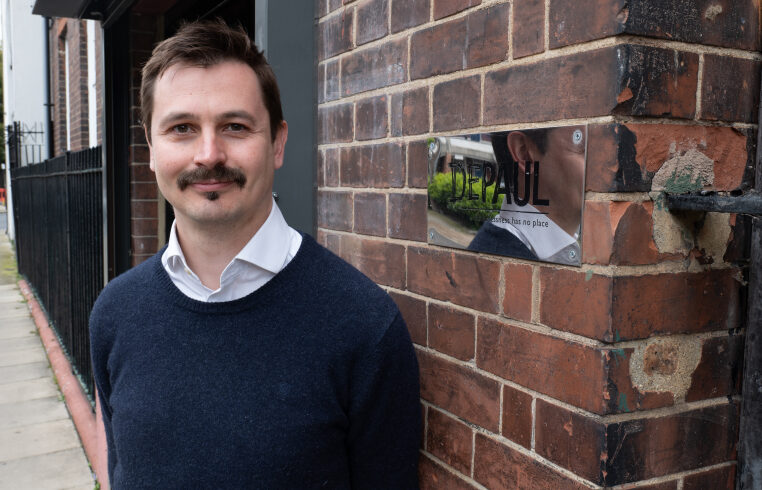
Homelessness is increasing in Britain, putting young people at risk. Depaul UK’s Director of Development and External Affairs Dan Dumoulin shares the latest facts about homelessness in the UK.
Yes – all the numbers are going the wrong way. Homelessness statistics show It is estimated that almost 4,000 people slept rough in a single night in England last autumn – more than double the number in 2010. In Scotland homelessness increased to more than 15,000 households between April and September last year.
There are many more people who are sofa surfing, in hostels, or other temporary or unsuitable places. Last year councils in England supported 317,000 households who are homeless or at risk of homelessness. That’s a record high. And there were 174,000 children in temporary accommodation at the end of 2023: another record high.
Huge increases in the cost of living, which we have all felt, but which are especially difficult for people on low incomes. They have found themselves having to choose between paying the rent or buying food. People have got behind on their bills and rent and have been evicted. There aren’t enough affordable homes, and people are forced to live in poor quality, very expensive private housing. We need to end no-fault evictions and Depaul UK and other charities have been calling on government to do this, but it hasn’t happened yet. The cost-of-living crisis, sky high rents and the lack of affordable social housing has created a perfect storm. And for young people it’s even tougher, because their minimum wage and their benefits are lower.
Yes, in an attempt to clear the backlog of open asylum cases, the Government reduced the time people granted refugee status had to find somewhere to live, to just seven days in some cases. It led to hundreds of refugees suddenly becoming homeless and sleeping on the streets.
Since 2010, there has been reduced funding from central government to local council budgets. That really matters when we are talking about homelessness because most of the responsibility for finding people accommodation falls on local authorities. It means there are fewer available beds – in hostels, supported accommodation, for women, and for young people – at the very time homelessness is rising.
The human cost behind the numbers is people who are sleeping rough being kicked or urinated on in the streets. Young people sofa surfing and being put in risky situations, where they are vulnerable to exploitation. Or families in unsuitable temporary accommodation, where parents feel their children are unsafe in the building, which might be miles from school or their friends and network.
We need the new government to commit to ending homelessness. It’s completely unacceptable that in 21st century Britain people are sleeping on the street.
Despite all the challenges, Depaul UK and our partners are still opening new services, putting new ideas into operation and helping people to get off the street. We have recently worked with central and local government in Middlesbrough to obtain funding to purchase 14 flats for rough sleepers. One man who was on the streets for 20 years has now got his own accommodation provided by us. He is very happy, and we are providing him with regular support to build a new life in his fantastic new home.